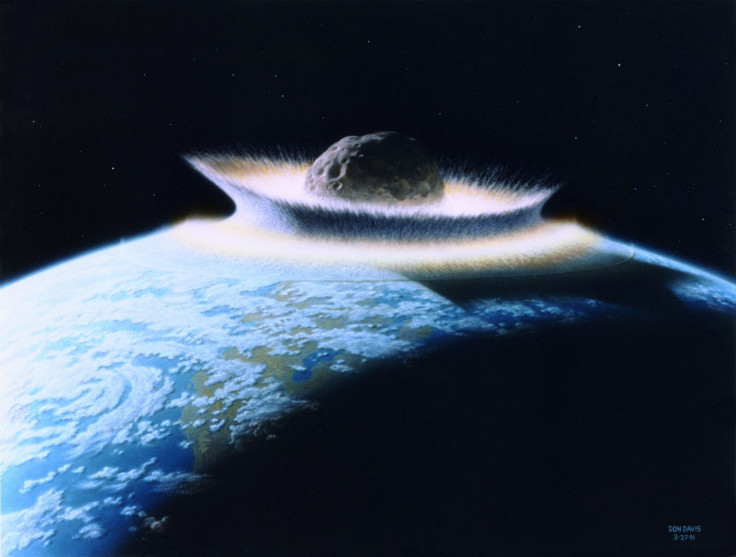Asteroid 2013 TV135 Could Hit Earth In 2032, Says Ukrainan Observatory

You might want to mark August 26, 2032 on your calendars, because it could be the last day for humanity as we know it.
A team of Ukranian astronomers at the Crimean Astrophysical Observatory discovered asteroid 2013 TV135, a 1,345-foot (410 meter) minor planet last week, the nation’s Ria Novost reports. According to their calculations, 2013 TV135 is currently orbiting the Earth at a distance of 1.7 million kilometers, and its trajectory could place it on a catastrophic collision course with our planet in 2032.
By Thursday, five more groups had confirmed the findings, including observatories in Italy, Spain, the U.K. and Russia. NASA has confirmed the discovery as well, adding 2013 TV135 to its list of recently observed near-Earth objects. The American space agency rated the asteroid a 1 on its Torino scale, meaning that the object represents a threat and "merits careful monitoring."
It’s easy to see why NASA deems the asteroid a threat. If 2013 TV135 does hit the Earth in 2032, it would result in an explosion packing the force of 2,500 megatons of TNT. That’s more than 50 times the power of the largest nuclear bomb ever detonated.
The good news is that there’s only a 1 in 63,000 chance of 2014 TV135 ever making contact with Earth. So it’s extremely unlikely that this asteroid will doom us all.
The bad news is that if the asteroid does wind up on a direct collision course with Earth, there would be no way to stop it. No matter what Michael Bay and Bruce Willis tried to tell you 15 years ago, there’s no technology in place to stop an approaching asteroid. According to Russian senior defense expert Igor Korotchenko, we may not have an adequate defense system to get the job done for another 50 years.
“We, humankind, can intercept missiles and planes manufactured by man, but our radars and missiles are helpless against asteroids, as they travel at faster speeds of dozens of miles per second, they have different trajectories and they can be much, much bigger than strategic missiles we are dealing with today," Korotchenko told the Los Angeles Times. "How can you intercept or even avert anything coming vertically down at us from outer space [and hundreds of feet] in diameter?”
© Copyright IBTimes 2024. All rights reserved.






















